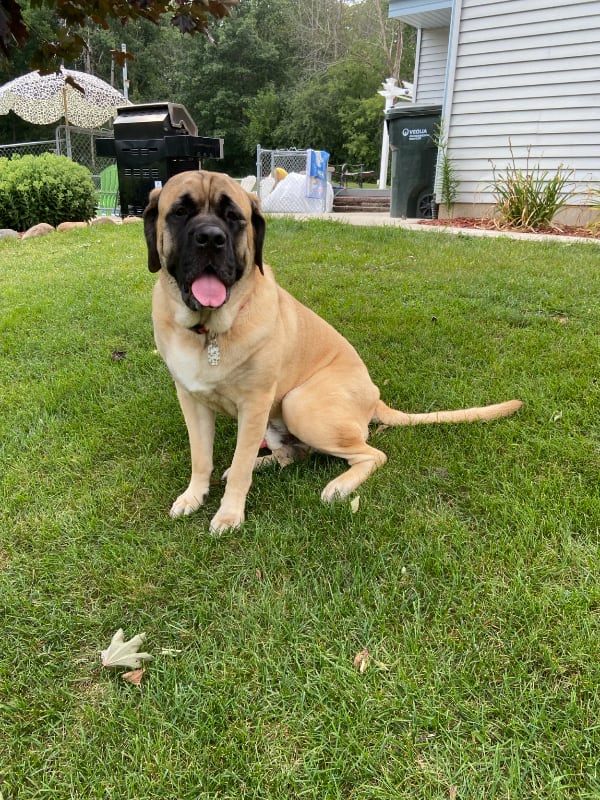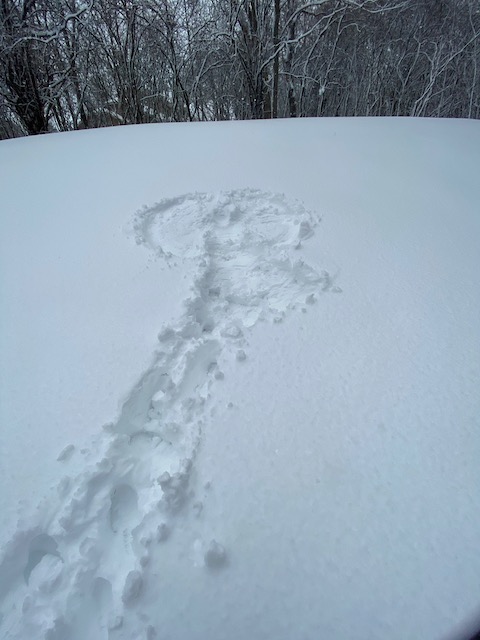My neighbor put his boat to bed the other day, and I watched him pull down the cover and tighten up the cords before he drove away to store it for the winter. The motions reminded me a lot of striking a tent, what with the canvas tarp and all the paraphernalia that goes along with it.
When I was in high school, our Girl Scout troop was gungho on camping and all sorts of other outdoor fun. If we weren’t canoeing on the river, we were camping in the woods, or working summer jobs as counselors at a nearby camp. One summer, we traipsed out into the woods to spend two weeks pioneer camping. That meant pitching tents away from anybody or anything…which also meant digging pit toilets and cooking over a fire. But it was the tents that were our worst challenge.
These were Army surplus tents, dating back, I swear, to the French and Indian Wars. Well, okay, not really, but they were probably used in World War I. Canvas that weighed a ton, they had a 12-foot ridge pole into which the two uprights fitted, one on each end. That meant at least three people were needed to put up one tent: one on each end to hoist up the ridgepole and tent, which was seated onto the uprights with grommets, and one person to run around like a crazy person, pounding in tent stakes and tightening ropes to hold the entire contraption upright. Many a tent capsized before enough stakes were in to hold it. And even then, if the “pounder” selected soft ground, the whole she-bang could tip over, like the Titanic slipping under the waves. Impossible to stop.
That was just the beginning. We were astute enough—we thought—to dig a trench around our tent, just in case it rained. Rain is pretty much a given when you camp. Mother Nature having fun. Anyway, with three of us in a two-person tent, it was crowded, and when the inevitable rainstorm hit, it overpowered the trench. Water coursed in a full-sized creek right down the middle of our tent. What was the Army thinking when they didn’t put floors in their tents? With a body in the middle, and all of us encased like mummies in our sleeping bags, none of us stood a chance of avoiding the deluge. We could’ve slept outside in the rain, considering how wet we were inside. All this is to say nothing of the daddy-long-legs we collected on the inside of the tent. Falling rain outside, and falling spiders inside. Delightful.
I moved up a notch to a tent with a floor…and a front awning! Heaven. Although it was still canvas. Sigh. This was a trip around Lake Superior with a college roommate who never camped before. We entertained a lot of neighbors in the campgrounds when we pulled in and got out of the car in clean shorts and tops, or even a skirt at times. One couple pulled out their lawnchairs to watch us set up, convinced, as they told us later, they’d have to step in and help. Nope. We pulled on our Wellies and lumberjack flannel shirts and proceeded to launch into our routine. This was no Army tent, so we had the protocol down pat, and the tent went up in record time. Canvas turned out to be a good thing when a mama bear with two cubs was scared away by campers in an RV. The cubs took off running, each zooming up a tree on either side of our tent. Mama, lumbering between our car and tent, called them down, and off they went. Scared the bejesus out of us!
Finally, I reached the pinnacle of tent camping when I camped with our adult daughter, just the two of us. She has the Ritz Carlton of tents. Perhaps not to some folks, but to me, grown up with those unwieldy canvas beasts, her nylon tent, WITH a vestibule, mind you, is the cat’s meow. Slide in the framework, pop it up, and voila! a 4-person tent. Well, it would be a 4-person tent, except that we travel in style. That means a queen-size air mattress (self-inflating, of course), sheets (yes, real bed sheets), blankets and pillows. With the ability to take off shoes in the vestibule, the inner tent stays pristine clean. Maybe “pristine” is a bit optimistic. But a lot cleaner that a tent with no floor, or a tent without a place to leave grubby shoes. Did it rain? Is the pope Catholic? Of course it rained! A huge, gully-washer of a thunderstorm. The trees above us sheltered us from some, but we pitched on high ground, and we put on the rain fly. Our mamas didn’t raise no dummies. We zipped the window closed, and slept all night. We remained dry as a bone. In the morning, all around us sleeping bags were draped over branches and cars, drying out. Some people went home. I tried not to feel smug. Been there, done that, I reminded myself.
Will I tent again? You betcha! Of course, cabin camping is nice too. And so is the Ritz , come to think of it…






